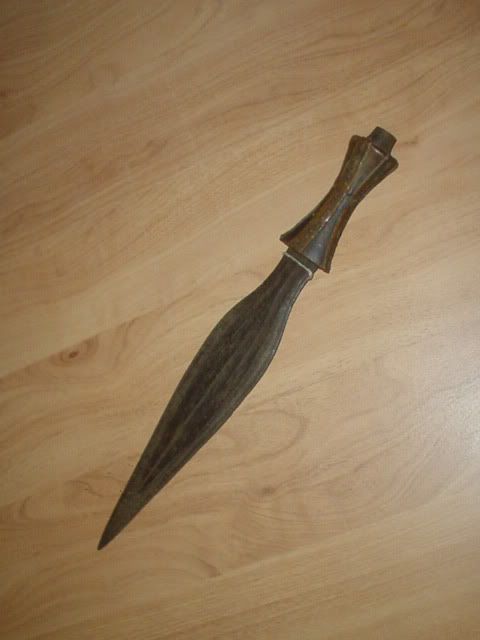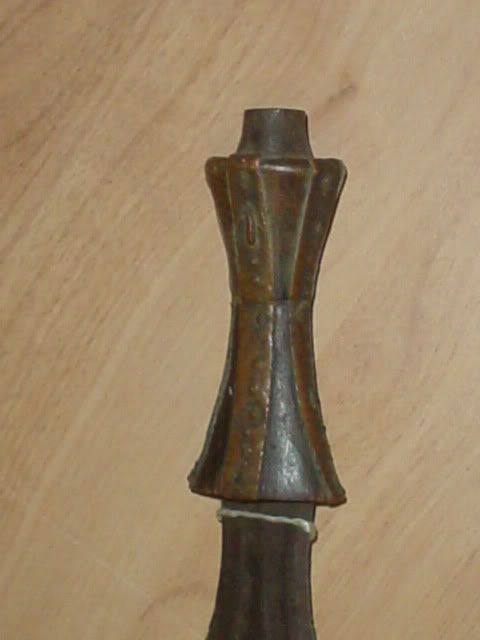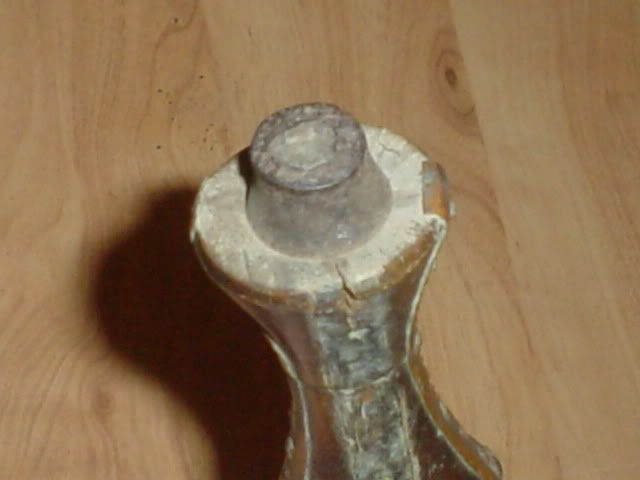
 |
|
|
|
|
#1 |
|
Member
Join Date: Dec 2004
Location: Sint-Amandsberg (near Ghent, Belgium)
Posts: 830
|
Last week, I was able to buy an entire collection of African weapons. Among these pieces was this dagger.
In my (humble) opinion, it is from the Luba-tribe. I found a dagger with a similar blade in one of my books. I hope you can see on the pics, this knife has a well forged blade. The wooden handle has been embellished with some copper strips. At the top of the handle, an iron ring has been added. Total length : 36 cm. Length of blade : 25,5 cm As I'm not at all sure of the origin, I would appreciate any 'input' from the other forum members.   
|
|
|

|
|
|
#2 |
|
Member
Join Date: Dec 2004
Location: Italia
Posts: 1,243
|
Hi Freddy, on Westerdijk's book there are two drawns of similar daggers-short swords in the XIII Groep (2-3) lulua-songye-luba. Something that could be similar with your piece is the sword on Fischer-Zirngibl, but is attributed to the Tchokwe (
 ). On Waffen aus Zentral Afrika there is the most similar and is attributed to the luba. So it's clearly of the southern area of Congo ). On Waffen aus Zentral Afrika there is the most similar and is attributed to the luba. So it's clearly of the southern area of Congo 
|
|
|

|
|
|
#3 |
|
(deceased)
Join Date: Dec 2004
Location: OKLAHOMA, USA
Posts: 3,138
|
A GOOD QUALITY AFRICAN KNIFE WELL MADE AND ATTRACTIVE. IT IS INTERESTING TO NOTE THE SIMULARITIES BETWEEN THIS EXAMPLE AND THE PHILIPPINE MANDAYIA DAGGERS.
|
|
|

|
|
|
#4 |
|
Member
Join Date: Dec 2004
Location: Sint-Amandsberg (near Ghent, Belgium)
Posts: 830
|
What Vandoo is writing is quite interesting. Some time ago, I had a conversation with a Dutch friend about the influence Southeastasian statues had on statues from East-Africa. He sees similarities in, for example, the position of the shoulders and arms.
Also, in his book - 'The Sickle Weapons - Part III' - the author Jan Elsen states that when he was doing research concerning these weapons, he found out that some of the Eastafrican tools/weapons (sickle knives) had a resemblance with weapons from Southeast-Asia (Borneo, Sumatra, Timor and even Vietnam). Through trade between East-Africa and Asia, it's well possible that all kinds of influences entered Africa. So it could well be that a particular shape of some type of knife followed the same 'route'. |
|
|

|
 |
|
|